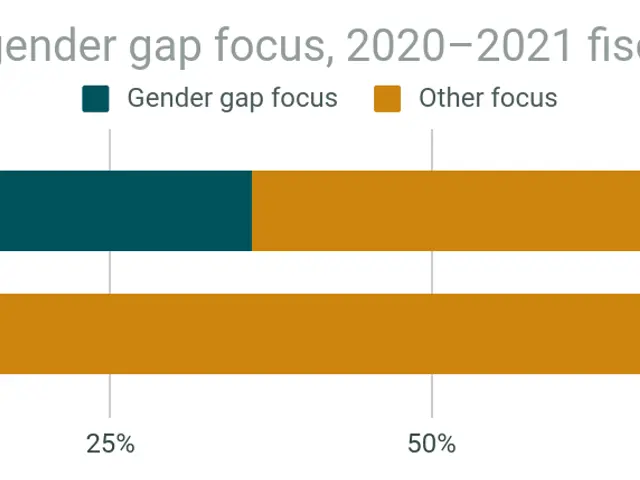Casino Gamers Shift in Preference Towards Skill-Based Games in 2025: Unveiling the Reasons
The Rise of Skill-Based Casino Games Among Younger Generations
In 2025, the landscape of the casino industry is undergoing a significant transformation, with skill-based games gaining immense popularity among Millennial and Gen Z players. This shift is driven by a combination of factors, including engagement, regulatory benefits, innovation, and social connections.
Firstly, the interactive nature of skill-based games resonates strongly with younger generations, who have grown up immersed in digital gaming. These games, which combine elements of traditional gambling with video game-like features, offer a more active and engaging experience than purely luck-based slot machines. Bonus rounds requiring quick thinking, hand-eye coordination, and decision-making make these games feel more like skillful challenges than passive spinning [1].
Millennials and Gen Z players, shaped by platforms like Twitch and TikTok, prefer entertainment that involves skill and player agency rather than chance alone. They seek instant feedback, control over outcomes, and games that respond to their abilities [1][2]. This alignment with their gaming preferences contributes to the growing appeal of skill-based casino games.
In the evolving legal landscape of gambling, skill-based formats offer clearer regulatory definitions compared to sweepstakes and some traditional gambling formats. This clarity encourages operators to invest in skill-based models, indirectly boosting their popularity among players as these games become more widely available and legally supported [2][5].
The surge in innovative casino trends, including skill-based games and AI-driven gaming experiences, also plays a significant role in attracting tech-savvy younger players. The novelty of these experiences, beyond traditional slots, contributes to the growth of skill-based formats [3].
Skill-based gaming formats foster competition and social interaction among players. Peer-driven contests and leaderboards build community, increasing player retention and loyalty, which appeals particularly to Millennials and Gen Z who value social gaming experiences [2].
Gen Z players show an even stronger digital tendency and seek completely new experiences in casino games. Social features like tournaments and multiplayer battles are crucial to modern gaming, fostering community growth and competitive environments [4].
Skill-based online casino games can be played across multiple devices, allowing players to continue their gameplay without interruptions. This flexibility adds to their appeal among younger players [4].
Modern players are willing to bet larger amounts on skill games when they believe their skills affect the outcome. Skill casino games provide an illusion of control to players, differentiating them from traditional games of chance that rely solely on luck [6].
AI in skill-based games analyses player behavior and creates challenges that progress with gameplay, adjusting game difficulty to maintain a balance between challenge and enjoyment [7]. This technology is driving the shift towards skill-based casino games, offering experiences that were previously impossible.
Skill-based casino games offer strategic depth that rewards practice and expertise, making them appealing to players seeking meaningful interaction, social connections, and fair competition. Dynamic difficulty adjustments are made based on a player's skill level in skill-based online casino games [8].
About 71% of Millennials consider themselves gamers and prefer skill-based casino games over games of chance [9]. Developers of skill-based casino games must carefully design and test algorithms to ensure fairness for players of different skill levels [10]. Many developers now support proper regulation, backing rules that limit games per location and require age checks [10].
However, skill-based casino games face regulatory challenges, particularly in the USA where a clear federal law regarding gambling is lacking [11]. Traditional casino games will continue to have their place, but the future belongs to experiences that reward skill, strategy, and personal growth alongside the excitement of chance.
In conclusion, the growing popularity of skill-based casino games among Millennials and Gen Z players is driven by a combination of factors, including engagement, regulatory benefits, innovation, and social connections. These games offer a more active and engaging experience, align with gaming preferences shaped by digital culture, and provide fresh, competitive social experiences. The rise of skill-based casino games signals a significant shift in the casino industry, appealing to players who seek games that test their abilities and reward smart thinking.
References:
[1] https://www.gaminglawreview.com/skill-games-and-the-gaming-regulatory-regime/ [2] https://www.forbes.com/sites/sarahjones/2018/09/12/skill-based-games-and-the-future-of-gambling/?sh=5c3c16c83d0f [3] https://www.casino.org/news/skill-based-games-changing-casino-industry/ [4] https://www.gamblingtimes.com/news/2020/09/28/skill-based-games-on-the-rise-at-casinos/ [5] https://www.forbes.com/sites/michaelgoodman/2018/04/04/skill-games-and-the-future-of-gambling/?sh=7c45794b5d2f [6] https://www.bloomberg.com/news/articles/2019-02-21/skill-based-gambling-is-booming-and-the-casino-industry-is-worried [7] https://www.gamingintelligence.com/news/42644-ai-technology-set-to-transform-the-casino-industry [8] https://www.gamespot.com/articles/skill-based-games-are-the-future-of-casinos/1100-6467638/ [9] https://www.statista.com/statistics/1052072/millennials-gaming-behavior-us/ [10] https://www.gaminglawreview.com/skill-games-and-the-gaming-regulatory-regime/ [11] https://www.forbes.com/sites/sarahjones/2018/09/12/skill-based-games-and-the-future-of-gambling/?sh=5c3c16c83d0f
- The popularity of skill-based casino games among younger generations is also driven by their preference for data-and-cloud-computing, as AI in these games uses player data to adapt and create personalized challenges.
- In addition, technology enthusiasts among the younger demographic are attracted to skill-based casino games due to their integration with gadgets, such as smartphones and VR devices, providing a more immersive gaming experience.
- Despite the growing popularity of skill-based games, concerns about their impact on health and the environment are emerging, given the addictive nature of gaming and the energy consumption of intensive technological devices.
- As the casino industry continues to evolve with skill-based games, traditional activities like community events and gatherings may lose significance among younger players, potentially leading to a disconnect between generations and a shift in social dynamics.






